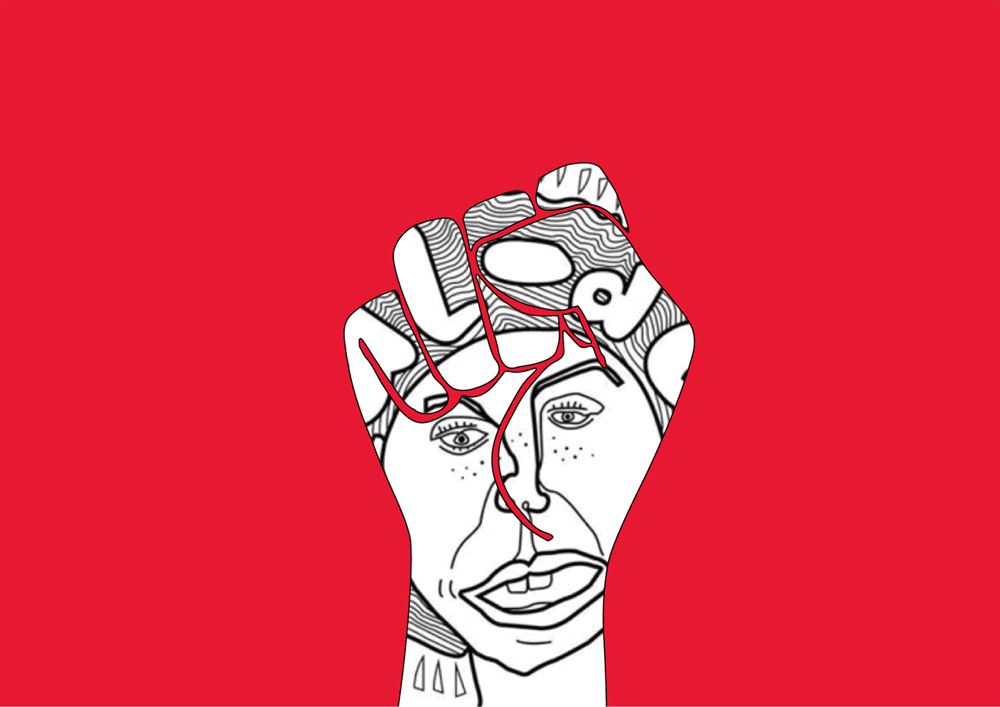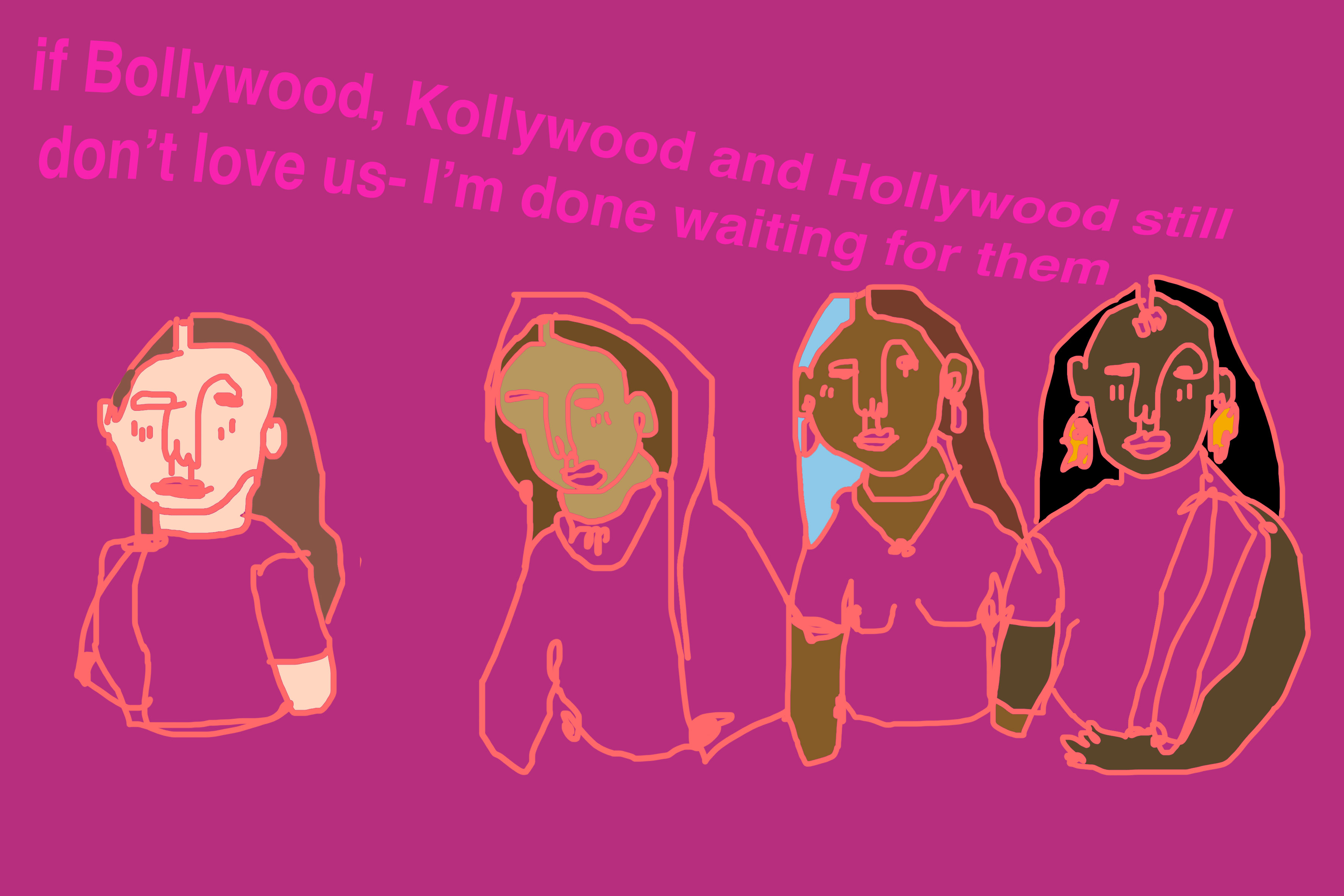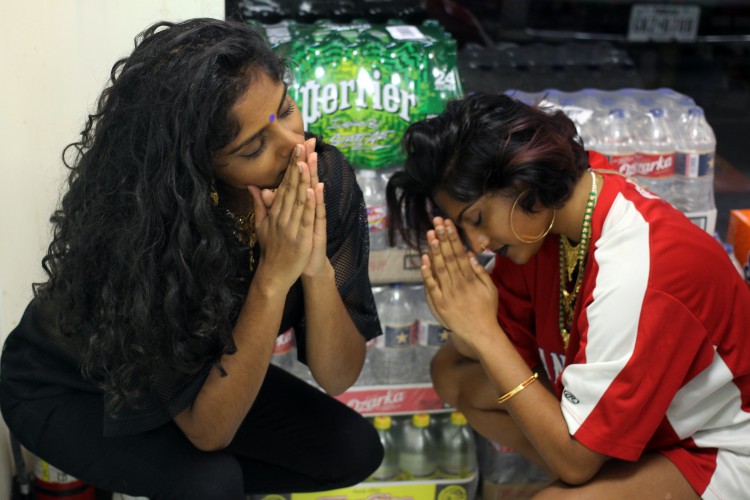
Fair & Lovely is a skin-lightening cream established by Unilever in 1975, in India, though it has since spread across the world along with similar products. While Unilever claims Fair & Lovely is physically harmless, its existence reinforces the idea that lighter (and whiter) skin is more beautiful, and therefore encourages the “superiority” of whiteness.
Set up to challenge the white beauty standards and colourism engendered by these products, #UNFAIRANDLOVELY is a social media campaign which celebrates dark-skinned people of colour.
The hashtag was created by Pax Jones, and sisters, Mirusha and Yanusha Yogarajah, a group of black and South Asian women, respectively, who study at the University of Texas. Although, ironically, previous articles have failed to identify Pax’s integral role in starting the hashtag, erasing her and the purpose of the hashtag for all dark-skinned people of colour, #UNFAIRANDLOVELY has been well-received across the internet.
The idea for the project came from Pax’s personal experiences of colourism, which she said were “similar to the way … Mirusha dealt with colourism”. Despite being black, while Mirusha’s South Asian, it was this idea of a transnational experience, which could “permeate various communities around the world”, which drew her to the project and led her to ask Mirusha and Yanusha to get involved.
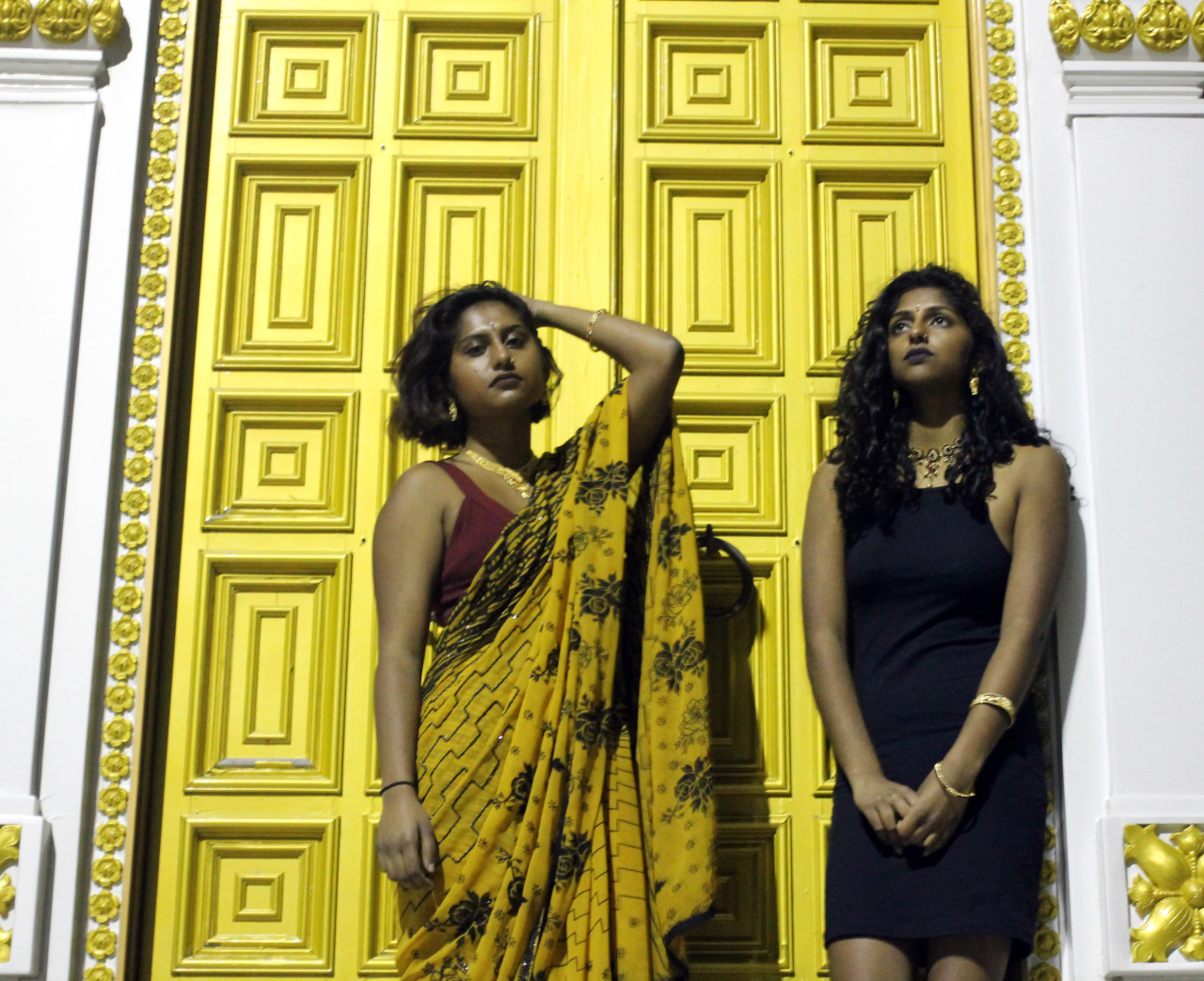 Beyond the transnational experience of colourism, there’s scope for difference. Pax identified “degrees of freedom” and extensions to colourism she experiences: “If you’re fat and a woman and you’re a South Asian activist online, then you’re light-skinned. You can’t be dark-skinned and fat and a woman at the same time.”
Beyond the transnational experience of colourism, there’s scope for difference. Pax identified “degrees of freedom” and extensions to colourism she experiences: “If you’re fat and a woman and you’re a South Asian activist online, then you’re light-skinned. You can’t be dark-skinned and fat and a woman at the same time.”
As a black woman, “the way colourism impacts [me] comes out in different ways”, she says, such as through comments on hair texture and bone structure.
“I’ve had family members tell me ‘your mom didn’t squeeze your nose enough when you were a baby and that’s why it’s so wide’.” Even so, Pax has admitted she’s “dark enough to be considered dark” but “light enough to not be considered too dark”, and therefore faces less difficulty than others.
By contrast, Mirusha identified more obvious experiences of colourism, from being told not to go out in the sun while she was growing up to how, “in a lot of heteronormative woman/man relationships, the woman tends to be lighter”, such as in her family.
“It’s definitely just a topic that’s been there my entire life,” she said.
It was the light-skinned privilege of South Asian activists online, though, that she emphasised. Despite talking about racism and “fatphobia” within their communities, they failed to address their own privilege. “If these girls were dark, first off how much attention would their social media get? … It’s just so interesting how easy it was for them to get a platform, without acknowledging privilege.”
Why #UNFAIRANDLOVELY?
Mirusha explained: “Even though Fair & Lovely is an Indian product, a lot of people within the black community have had it purchased for them or purchased it themselves.” Thus, despite a variety of products aimed at different communities, black and brown communities’ fundamental experience of colourism are not so different.
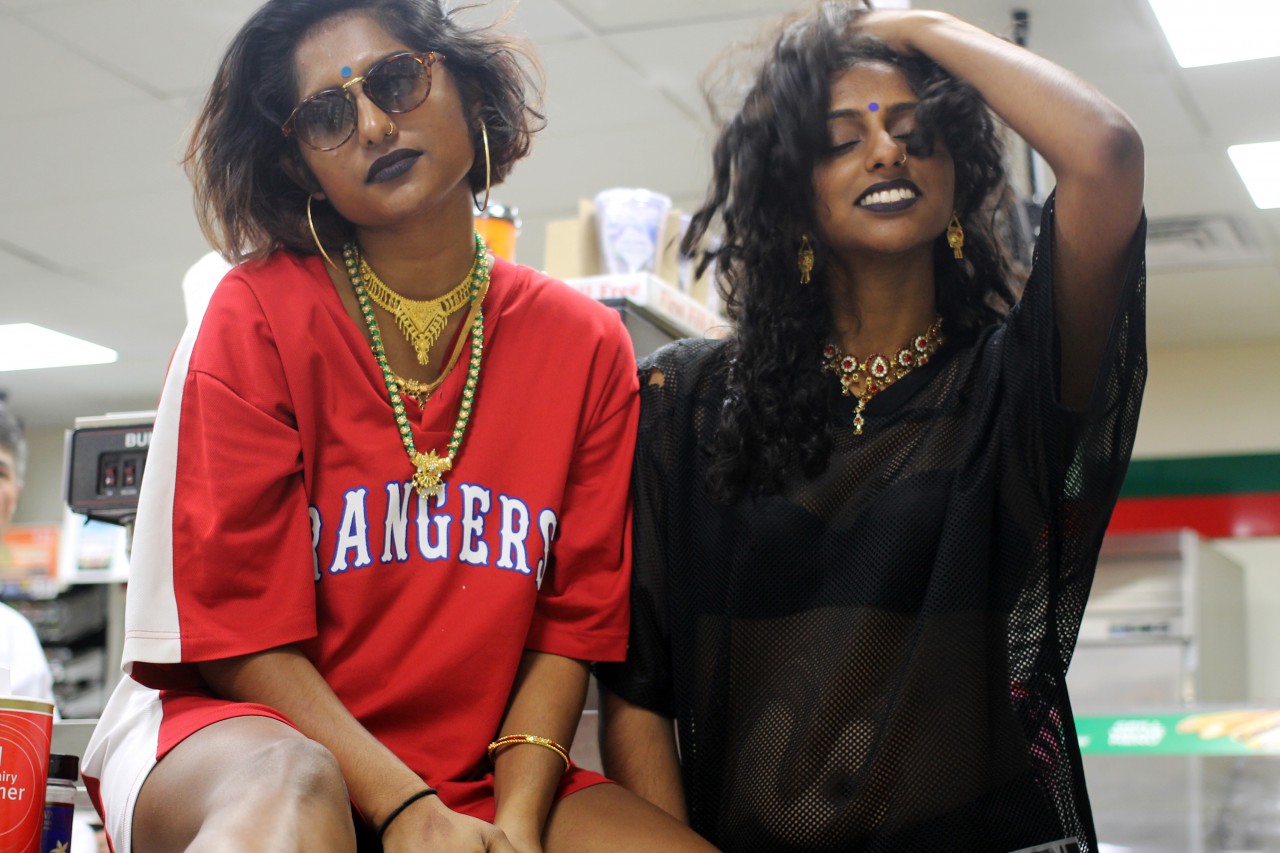 However, before #UNFAIRANDLOVELY became widely circulated on social media, the concept had its humble beginnings as a photoshoot, in December 2015.
However, before #UNFAIRANDLOVELY became widely circulated on social media, the concept had its humble beginnings as a photoshoot, in December 2015.
“Before [the hashtag] happened, I said some things on Twitter about the voice of black feminism being light-skinned, biracial, racially-ambiguous black women.” Pax explained, “The tweets on that got a lot of attention and a few weeks later is when I conceptualised exactly what I wanted the project to be on.”
The project culminated in a set of photos of Mirusha and Yanusha, dressed up in South Asian and Western clothes, at a Hindu temple and a 7-Eleven (a chain of convenience stores in America). For Mirusha, the point of the shoot was to embrace the “hyphenated identity” of herself and her sister, Yanusha, as second-generation, dark-skinned South Asian, Tamil Americans.
What was a quirky and, clearly, fun photoshoot is also significant in celebrating their experiences as dark-skinned members of the diaspora, who are frequently ignored or erased. From the 80 or 90,000 notes the first photos received on Pax’s Tumblr, it is clear that this initial message resonated. And, soon after, the hashtag was born, setting off quickly almost by accident. 26 February became the day to celebrate dark-skinned people and, a few weeks later, #reclaimthebindi also featured #UNFAIRANDLOVELY.
“When we first did this,” Pax emphasised, “we weren’t looking to start a Twitter or social media campaign. That’s not what we were looking for. I just posted my photos on Tumblr. I wasn’t looking to pursue this, you know? I was just trying to share my work. And it became something.” Reflecting upon the misinformation that had followed the campaign, she added, “it’s hard to see what you produce go in various directions without having control over it.” There were a number of women who criticised black women for contributing to the hashtag, despite its origins.
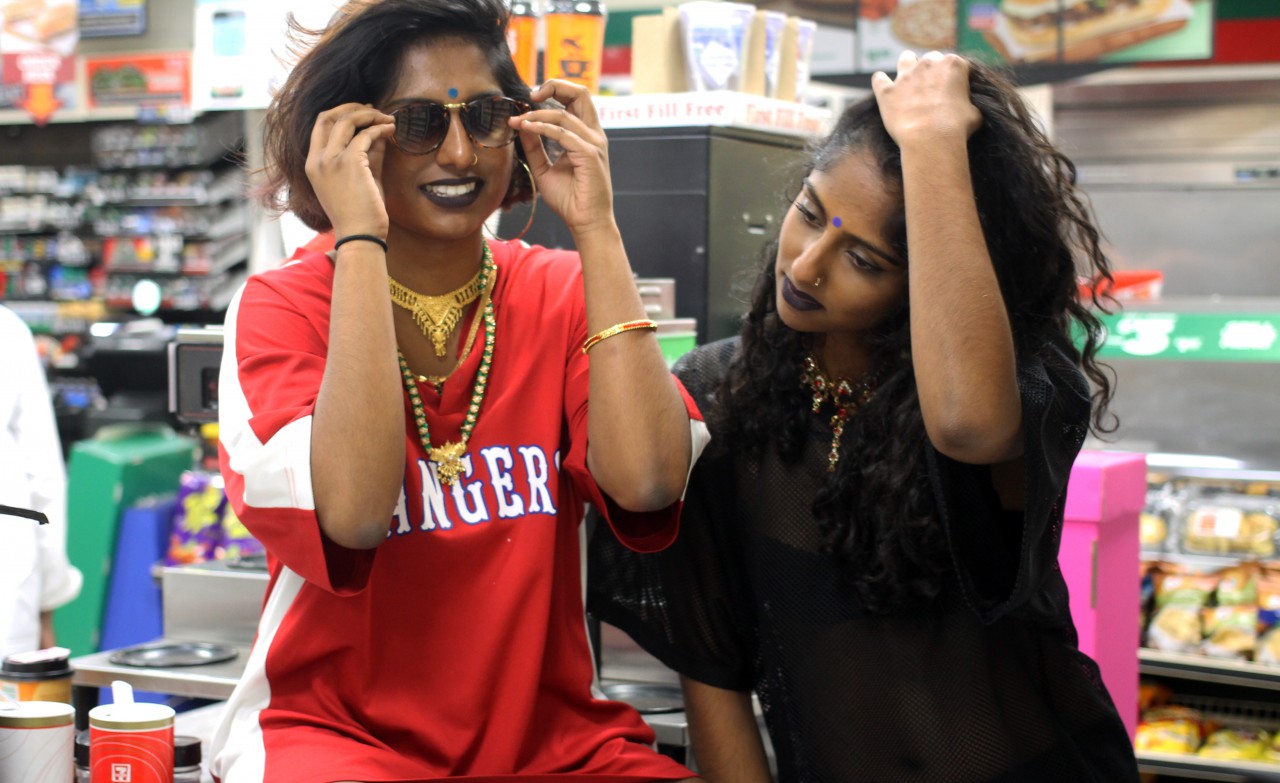 While the emphasis of the campaign is on colourism and celebrating dark-skinned people of colour, my conversation with Mirusha and Pax explored the origins of this discrimination. In addition, they described the challenges they faced once the hashtag took off.
While the emphasis of the campaign is on colourism and celebrating dark-skinned people of colour, my conversation with Mirusha and Pax explored the origins of this discrimination. In addition, they described the challenges they faced once the hashtag took off.
Although it was easy to attribute the supremacy of “whiteness” and anti-blackness to Western imperialism over the past few centuries, Pax pointed out that these ideas predated colonialism. “To complicate it a little bit … what is it that is so much more archaic about colourism?”
The most obvious are the Arab slave trade, the advance of Islam into Africa and the caste system in India. But how far colonialism contributed versus these answers is not entirely clear.
Despite the heavy focus on colourism, light-skinned people of colour still attempted to use #UNFAIRANDLOVELY. Mirusha said it best: “You are using this hashtag as a light-skinned person and the number of likes and retweets you’re getting is very telling of your privilege. Because there are dark people using this exact same hashtag, who are not getting likes and retweets, even though they are beautiful people.”
The person she challenged, accused Mirusha of being jealous and she added: “Okay, so let’s reproduce this jealous, angry, sexualised, dark person by saying shit like that. Yet you wanna use this hashtag. That was another time where, even with our own platform, we’re getting hate for our dark skin, or for advocating for ourselves.”
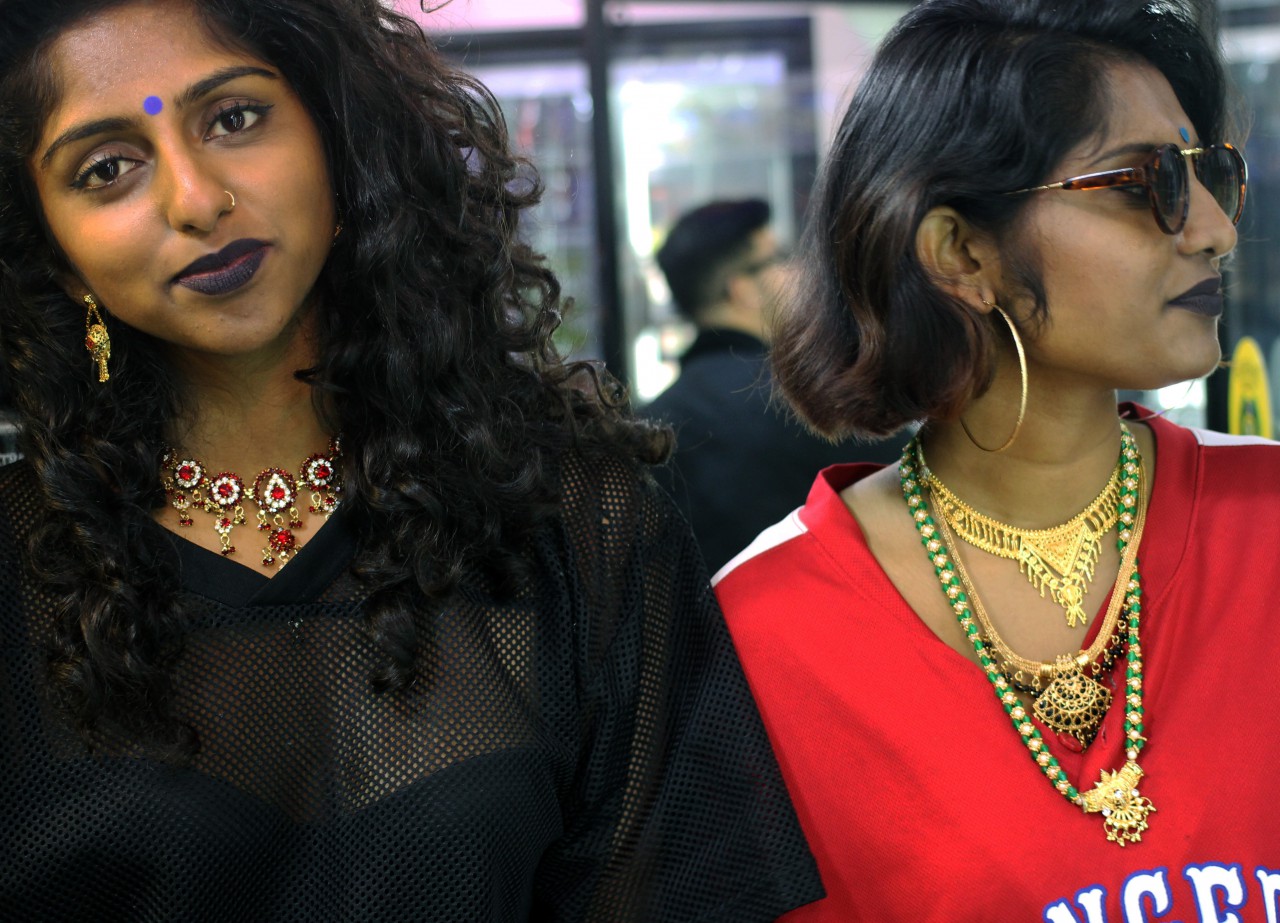 Regardless of the issues they faced, Mirusha ended on a very positive note: “I thought it was really cool how #UNFAIRANDLOVELY brought out black South Asians. From South Asian imagery to people, history, everything. It was really cool to see black East Indians, like Trini people and Guyanese people and black people in India, in Sri Lanka, just coming out and being like, I’m dark and black and I wear bindis and I’m Hindu … And it was really cool to see some of those people through the hashtag and [give them] some form of visibility.”
Regardless of the issues they faced, Mirusha ended on a very positive note: “I thought it was really cool how #UNFAIRANDLOVELY brought out black South Asians. From South Asian imagery to people, history, everything. It was really cool to see black East Indians, like Trini people and Guyanese people and black people in India, in Sri Lanka, just coming out and being like, I’m dark and black and I wear bindis and I’m Hindu … And it was really cool to see some of those people through the hashtag and [give them] some form of visibility.”
And, in case it wasn’t clear, as Pax repeated towards the end of our conversation, #UNFAIRANDLOVELY is for all dark-skinned people of colour. Period.
All photos by Pax Jones, featuring Mirusha and Yanusha Yogarajah.
You can find Pax Jones and Mirusha Yogarajah on social media:
Instagram: @unfairandlovely_
Twitter: Pax @misspaxjones, Mirusha @browniverson3
Tumblr: Pax @paxj, Mirusha @sweetnessofmysolitary
Website: Pax Jones
Get involved with gal-dem’s skin lightening series. Comment, tweet us at @galdemzine using the hashtag #skinlighteningseries, or email info@gal-dem.com if you would like to share your experience.



